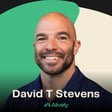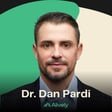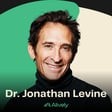
Lyme Disease Symptoms and Treatment with Chloe Porter - E44
In this powerful episode, we dive into the harrowing medical journey of a woman whose mysterious symptoms eventually led to her being diagnosed with Lyme disease. Her story highlights the challenges of complex medical diagnoses, the emotional toll of such uncertainty, and the persistence required when conventional treatment fails to help. Join us as we look into a years-long search for answers, the turning point in our guest's diagnosis, and the integrative approach that finally put her on the path to recovery.
Chloe Porter is a resilient health researcher and biohacker who has bravely navigated her own battle with a brain tumor, Lyme disease and mold toxicity. Her journey of self-discovery and recovery has turned her into an advocate for wellness and a trusted voice in the health space, through her platform, The Synthesis of Wellness. A former competitive horseback rider and triathlete, Chloe combines her engineering background with her profound personal insights to educate others through her media presence, including her podcast and public lectures. She is an author of the groundbreaking book, "75 Gut-Healing Strategies & Biohacks, and a podcast host of The Synthesis of Wellness show. She engages a dedicated community with her teachings on neuroinflammation and gut health, offering a unique blend of scientific rigor and personal experience.
“I am a very logical person at heart, wanting to know the why behind everything.” - Chloe Porter
In this episode you will learn:
- How Chloe's personal health journey, featuring Lyme disease and mold toxicity, led her to take control of her own health and dive into biohacking.
- The potential neurological impact of chronic Lyme disease and the unexpected discovery of a brain tumor during Chloe's medical journey.
- Practices and lifestyle adjustments Chloe adopted to manage symptoms and support recovery, including dietary interventions and supplements.
- The importance of community and connection in overcoming health challenges, as illustrated by Chloe's experiences and her work with a supportive biohacking community.
- Insights into neuroinflammation and the gut-brain connection, a current area of focus and passion for Chloe in her ongoing research.
- The role of mindset, meditation, and self-talk in fostering resilience and maintaining mental well-being through health challenges.
Resources
- Connect with Chloe on Instagram: https://www.instagram.com/synthesisofwellness
- Learn more about The Synthesis of Wellness: https://www.synthesisofwellness.com/
- Shop all the products Chloe mentions in this episode: https://alively.com/products/chloe-porter
This podcast was produced by the team at Zapods Podcast Agency:
https://www.zapods.com
Find the products, practices, and routines discussed on the Alively website:
https://alively.com/

















